 Not so very long ago, MySpace ruled the social roost. It has ended up being the trailer park of social networking, although the music thing has saved it from oblivion and even lends it a shred of dignity despite its hideous appearance (think The Elephant Man). The problem with MySpace was that it didn’t evolve enough to meet the needs of increasingly demanding users, so people moved on to Facebook when it came along. But I’m thinking the property values at Facebook will be plunging pretty soon too…
Not so very long ago, MySpace ruled the social roost. It has ended up being the trailer park of social networking, although the music thing has saved it from oblivion and even lends it a shred of dignity despite its hideous appearance (think The Elephant Man). The problem with MySpace was that it didn’t evolve enough to meet the needs of increasingly demanding users, so people moved on to Facebook when it came along. But I’m thinking the property values at Facebook will be plunging pretty soon too…
That’s because the “nice” people are leaving the neighborhood. Or at least the smart ones are. The ones who actually know there’s an Internet outside of Facebook… In fact, they seem to be fleeing like somebody yelled Ebola:
Exhibit A: “delete Facebook account” was the #9 Google keyword search on May 14th, 2010.
Exhibit B: “diaspora,” the current great white hope for an ethical Facebook alternative, was #13.
I killed my Facebook account yesterday. It felt great. I never wanted one in the first place. Their latest sleight of hand act sounded the death knell for my account, but it clung to life for a couple more weeks cuz my kid was still there, although he hardly ever posted updates. I told him I was leaving and sent him an article on Facebook’s questionable morality, and he said “I’m out too,” and was gone before I could reply.
So why did I have a Facebook account in the first place, you ask? Because when I made my début on the Paris startup scene and US tech blog scene a few years ago, people I met IRL and online all wanted to connect on Facebook. LinkedIn was not the first choice for this crowd of young and young-at-heart webby people because it’s stodgy and boring and has limited interactivity options. So first and foremost, I used Facebook for professional contact management. I didn’t have to remember or make note of people’s e-mail addresses or projects/companies. Accepting or sending a friend request took care of all that, and usually included a picture. It not only gave me easy access to the people, but also easy access to the buzz in my areas of professional interest.
Then old friends, dads of old friends, cousins I haven’t seen in decades, former students, and so on began showing up, at which point I started getting asked to help find lambs in cornfields and shit.
I never put much personal info up there; what music or books I liked, etc. My updates were fed automatically from my professional blog for the most part. Didn’t say what or where I was eating, or talk about personal problems or sorrows. Not my style.
Are you really OK with being a lemming?
In the US, 25% of the web pages viewed are within Facebook. (That’s just so beyond sad.) This may partially explain why, when I told Facebook people I was leaving the site because I thought it was an unscrupulous and untrustworhy company (and asked them to connect with me on LinkedIn till something better came along), one of them, an educated woman, said “I am not sure what facebook is doing that you are troubled by, but do share!” and another one, who considers herself a web entrepreneur, just asked “Why are you leaving facebook?”
Upon reflection, I was surprised that I was surprised that people had no idea that Facebook has, from Day One, been subject to scrutiny and criticism for its morally questionable actions, blatant fuck-ups and lack of respect for users and their personal information. Of course (lightbulb)! Ordinary people don’t read about the Internet, they just jump right in and use it. And Facebook banks on that kind of lemming-ness.
The old-school media has obviously not done its job when the general public isn’t even aware that it’s being violated and abused (except for the New York Times, but what fraction of Americans has the attention span for that?). They prefer to inform the public about golfers’ wayward penises, I guess. But online media and geeky bloggers have never taken the heat off of Facebook. I wrote about one of the scandals in November 2007, before I even had an account.
So people don’t know these things because nobody tells them. They must be too busy or lazy to inform themselves. Or they’re stupid, which is not their fault. Society has a responsibility to care for people who can’t care for themselves, which is why complaints recently filed by consumer protection groups in the US have led to an FTC investigation of Facebook.
So this is me suggesting you pay a little attention. For your own sake, read the articles I link to in this post, including this one by Danah Boyd [my emphasis]:
The battle that is underway is not a battle over the future of privacy and publicity. It’s a battle over choice and informed consent. It’s unfolding because people are being duped, tricked, coerced, and confused into doing things where they don’t understand the consequences. Facebook keeps saying that it gives users choices, but that is completely unfair. It gives users the illusion of choice and hides the details away from them “for their own good.”
The honor code
People who live and work online (like me), and many Internet pioneers, leaders and icons, are saying “enough is enough” and leaving Facebook. And “ordinary” people need to listen when these people talk because they pay attention.
You see, Internet startups consider themselves a breed apart from greedy corporate behemoths, and there is an honor code. Google was the first to put it into words when they included in their philosophy the statement “You can make money without doing evil.”
The founder of Facebook was cutting school that day.
Which is why we are turning against Facebook. We’ve indulged them long enough, given them ample opportunity to learn from their mistakes and mend their ways, but it ain’t happening. Facebook is a recidivist delinquent exhibiting sociopathic behavior. Ordinary methods for bringing about behavioral change won’t work. It’s a shame when there is nothing more you can do, but at a certain point you have to accept and move forward.
“Yes We Can” live without Facebook!
Think about it. You were in touch with all the people you wanted to be in touch with before Facebook came along. OK, maybe you’ve found a few new ones. So exchange e-mails. You had ways to find out what people had been up to if you really wanted to know. You knew how to contact them in an emergency. And I promise you something better will be along soon. Something created by entrepreneurs who were in school on Honor Code day. Something created by entrepreneurs who wouldn’t have the conversation Facebook founder Mark Zuckerberg had right after launching Facebook:
Zuck: Yeah so if you ever need info about anyone at Harvard
Zuck: Just ask.
Zuck: I have over 4,000 emails, pictures, addresses, SNS
[Redacted Friend's Name]: What? How’d you manage that one?
Zuck: People just submitted it.
Zuck: I don’t know why.
Zuck: They “trust me”
Zuck: Dumb fucks.
May 31st is Quit Facebook Day….
Your reading list
This list is not comprehensive! Google around a bit if this isn’t enough for you.
- Facebook Privacy: A Bewildering Tangle of Options
- Facebook’s Gone Rogue; It’s Time for an Open Alternative
- Top Ten Reasons You Should Quit Facebook
- More Reasons Why You Should Still Quit Facebook
- Protect Your Privacy Opt Out of Facebook’s New Instant Personalization – Yes You Have to Opt Out
- How did Facebook guess my e-mail addresses?
- How to Set Up a Facebook Fan Page for Business
- “Kill Your Facebook Page” Backlash Gains Speed
- How bad is Facebook privacy? There’s now an app to search your status updates.








 I got stuck on the avatars for a while, though, because I couldn’t pick a type. I’m a composite of four or five of them, depending on my mood and what I’m doing… But that’s half the fun and, as a user, I was engaged.
I got stuck on the avatars for a while, though, because I couldn’t pick a type. I’m a composite of four or five of them, depending on my mood and what I’m doing… But that’s half the fun and, as a user, I was engaged. 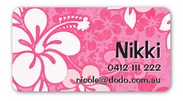 That explains why this template jumped out at me and took me back, on that fall day in Paris, to a time when half the clothes in my closet looked like this. Didn’t hurt that with the onset of black clothing season in Paris, I have been in a seriously pink mood.
That explains why this template jumped out at me and took me back, on that fall day in Paris, to a time when half the clothes in my closet looked like this. Didn’t hurt that with the onset of black clothing season in Paris, I have been in a seriously pink mood. Problem is, nobody’s gonna know that – no card owner (or few), no recipient, no recycling facility – because the symbol that appears on the site (and you have to go looking for it) is nowhere to be seen on the cards themselves. They need to print it prominently, and proudly, on the backs of the cards, next to their logo (and also to display it prominently on the site).
Problem is, nobody’s gonna know that – no card owner (or few), no recipient, no recycling facility – because the symbol that appears on the site (and you have to go looking for it) is nowhere to be seen on the cards themselves. They need to print it prominently, and proudly, on the backs of the cards, next to their logo (and also to display it prominently on the site).


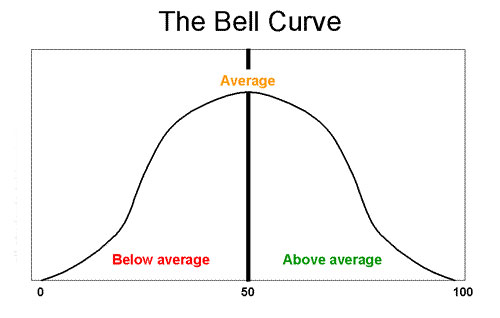

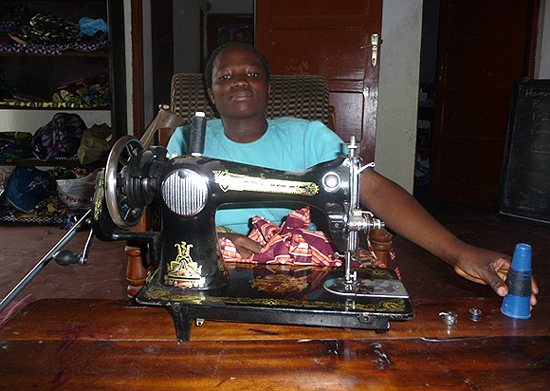

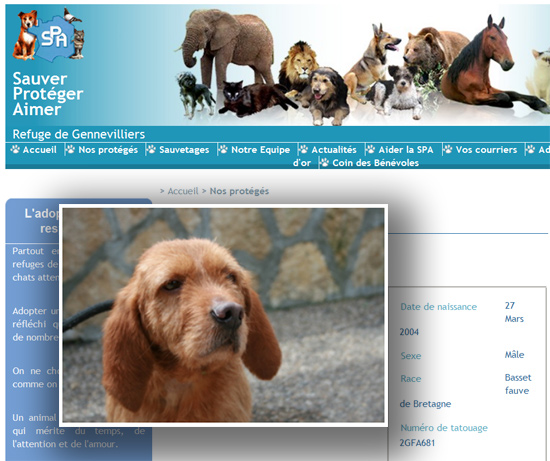


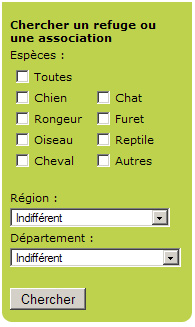 If you’ve been searching the web for a shelter animal to rescue in France, you’ve probably noticed an abominable lack of coordination among shelters and agencies, logic-defying website organization, inadequate information, and general incoherence.
If you’ve been searching the web for a shelter animal to rescue in France, you’ve probably noticed an abominable lack of coordination among shelters and agencies, logic-defying website organization, inadequate information, and general incoherence.